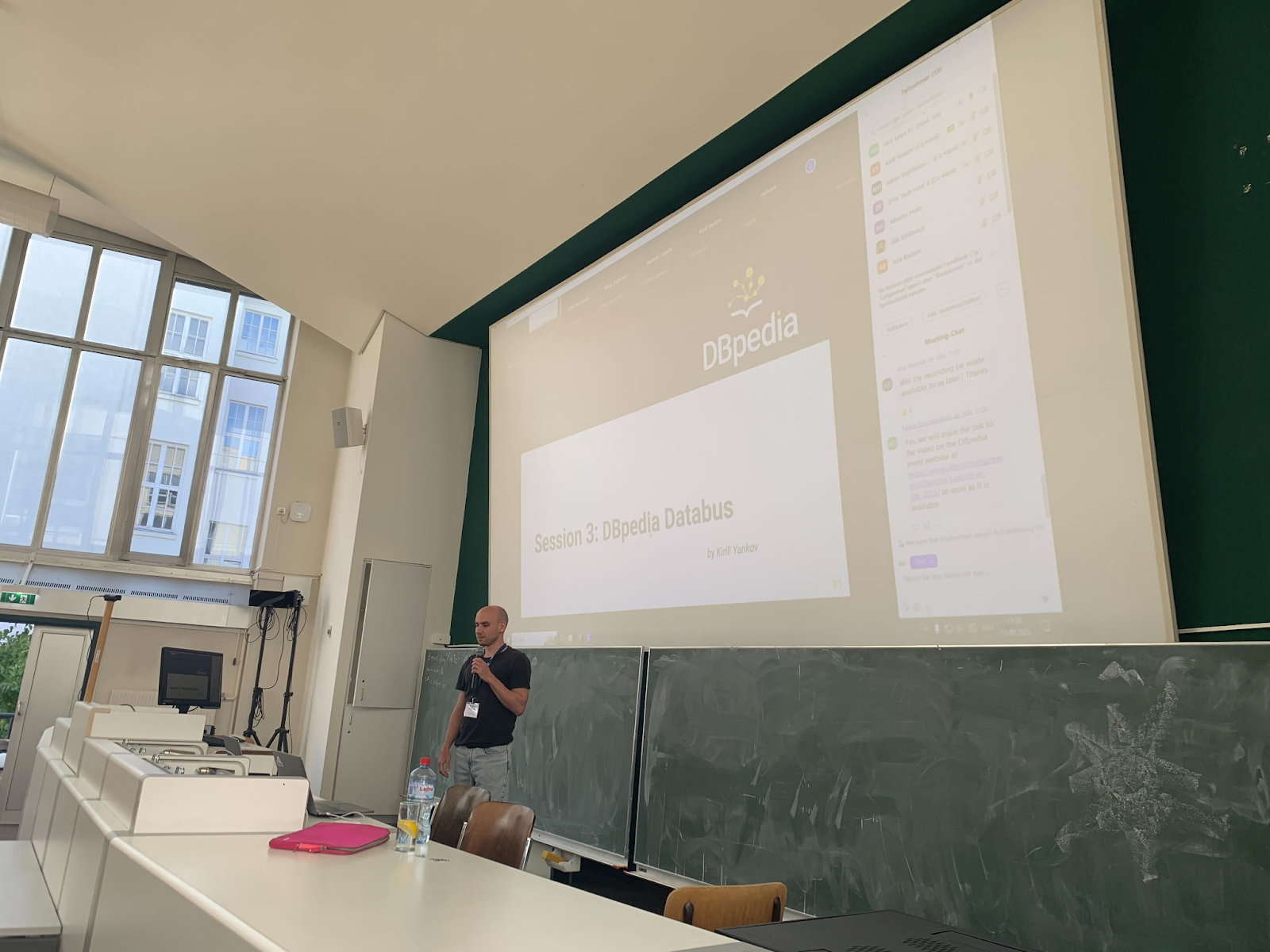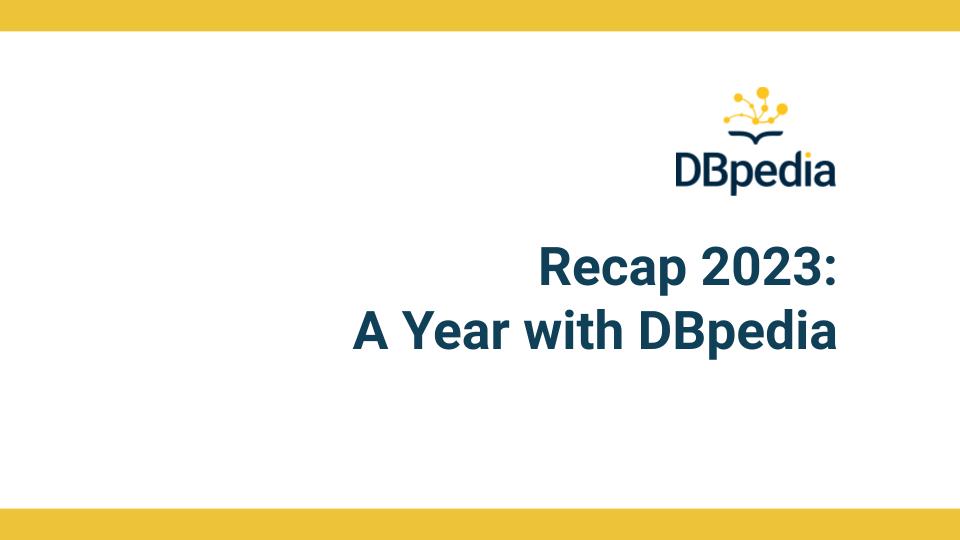This is the final part of our journey through 2023. In the previous blog post we have presented the DBpedia highlights. Now we will take a look at the second half of 2023 and give an outlook for 2024.
Tutorial @ Language, Data and Knowledge conference
On 13th of September, 2023, an exciting tutorial took place at the University of Vienna in the Center for Translation Studies as part of the LDK 2023. The LDK conference focuses on the acquisition, maintenance and use of language data in the context of data science and knowledge-based applications. The tutorial was opened by Milan Dojchinovski (InfAI, DBpedia Association, CTU in Prague). This was followed by three sessions, which were accompanied by many real-world practical use cases, on the DBpedia Knowledge Graph, the infrastructure and the use of the databus data publishing platform. Check more details on our events page.
DBpedia Day @ SEMANTiCS in Leipzig
DBpedia Day was once again part of the program at this year’s SEMANTICS conference 2023. It was held on 20th of September at the HYPERION Hotel Leipzig with up to 100 DBpedians. Once again this year, our CEO Sebastian Hellmann opened the day with a presentation of the “DBpedia Databus version 2.1.0”. This was followed by the exciting keynote speech “Towards Foundation Models for Data Spaces” by Edward Curry from the University of Galway, Ireland. Afterwards, we organized the member session and the DBpedia Science Talk session. All slides can also be found on our events page.
Databus
Databus pre-launch announcement
We are in the final stage of the DBpedia Databus open software release (GitHub). Remaining issues include quality of life and UI improvements. Check out the Databus feature matrix for our lightweight, scalable, adaptable, powerful Data Catalog Platform (direct download link, persistent data identifier on the databus). Contact dbpedia@infai.org for demo, business, or research proposal inquiries.
Databus excels at cataloging de-central data of any filetype using RDF/DCAT. We selected a few initial focal use cases, where the Databus serves as:
- AIModelHub for AI training data, models, validation, and deployment.
- Research Data Management Catalog for research institutes and communities.
- Supply-Chain-Management Platform for product information collection along the supply chain and construction of Digital Product Passports.
- Community Data Portal, e.g., for the DBpedia Community.
DBpedia Contributions will be enabled soon, taking DBpedia to the moon! 🚀
In DBpedia’s future, the Databus will be used to collect community contributions more effectively, giving DBpedia an enormous boost in quantity and quality. https://databus.dbpedia.org already catalogs over 350k files with over 1 Million file downloads per month! We are preparing showcases, templates, and documentation for these community contribution types:
- Community Extensions such as caligraph.org or AI-improved abstracts.
- Community Link Contributions for inclusion in the main graph.
- RDF profiles for DBpedia Users and Members (FOAF, Schema.org, WebID) via Databus Accounts (including publication of expertise).
- Dockerized RDF Tool Deployment so you can automatically load DBpedia and other RDF data into your favorite RDF tools via Databus collections. Our Databus-powered Virtuoso SPARQL Endpoint Quickstart Docker has already been deployed over 150k times!
We do hope we will meet you and some new faces during our events next year. The association wants to get to know you because DBpedia is a community effort and would not continue to develop, improve and grow without you. We plan to have a tutorial at the LREC-COLING 2024 conference and a meeting at SEMANTiCS, Sep 17-19, 2024, conference in Amsterdam, Netherlands.
Stay safe and check Twitter, Instagram and LinkedIn or or subscribe to our Newsletter for the latest news and information.
Yours,
Julia & Maria
on behalf of the DBpedia Association
- Did you consider this information as helpful?
- Yep!Not quite ...

